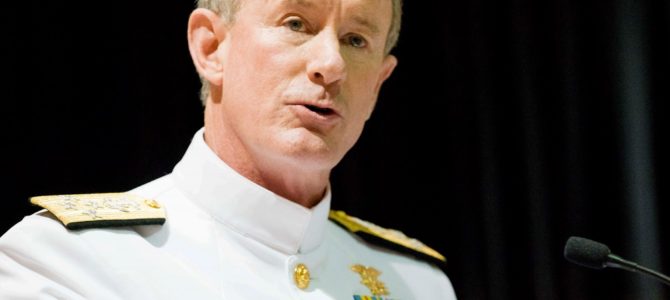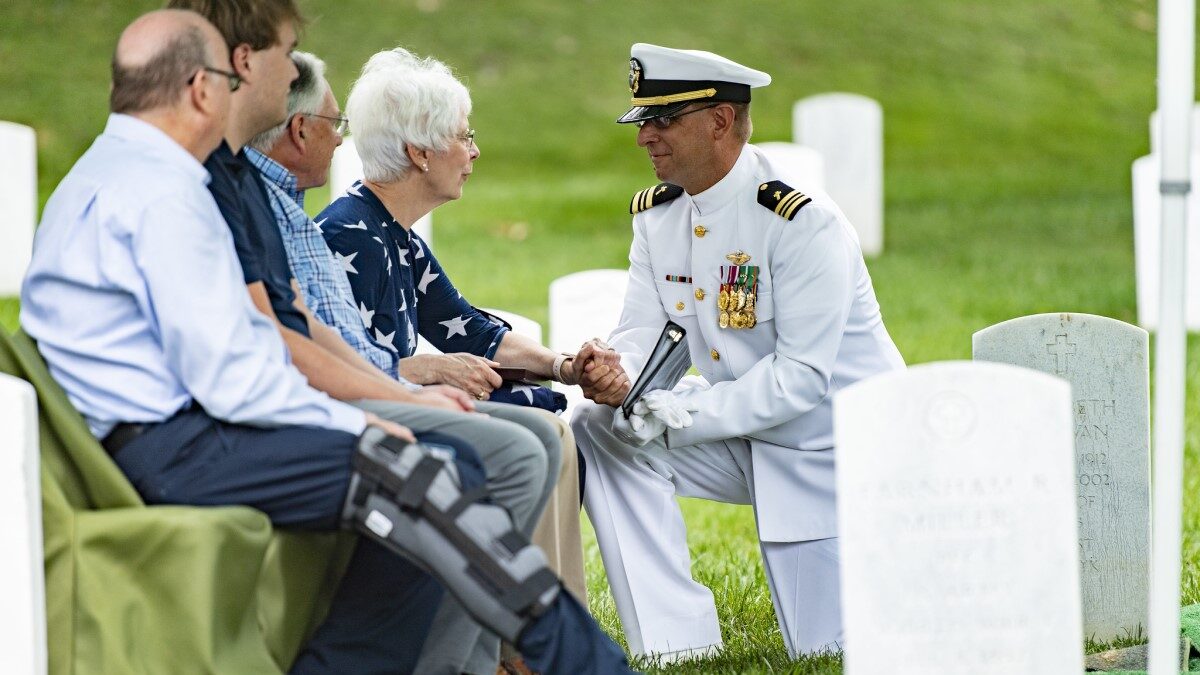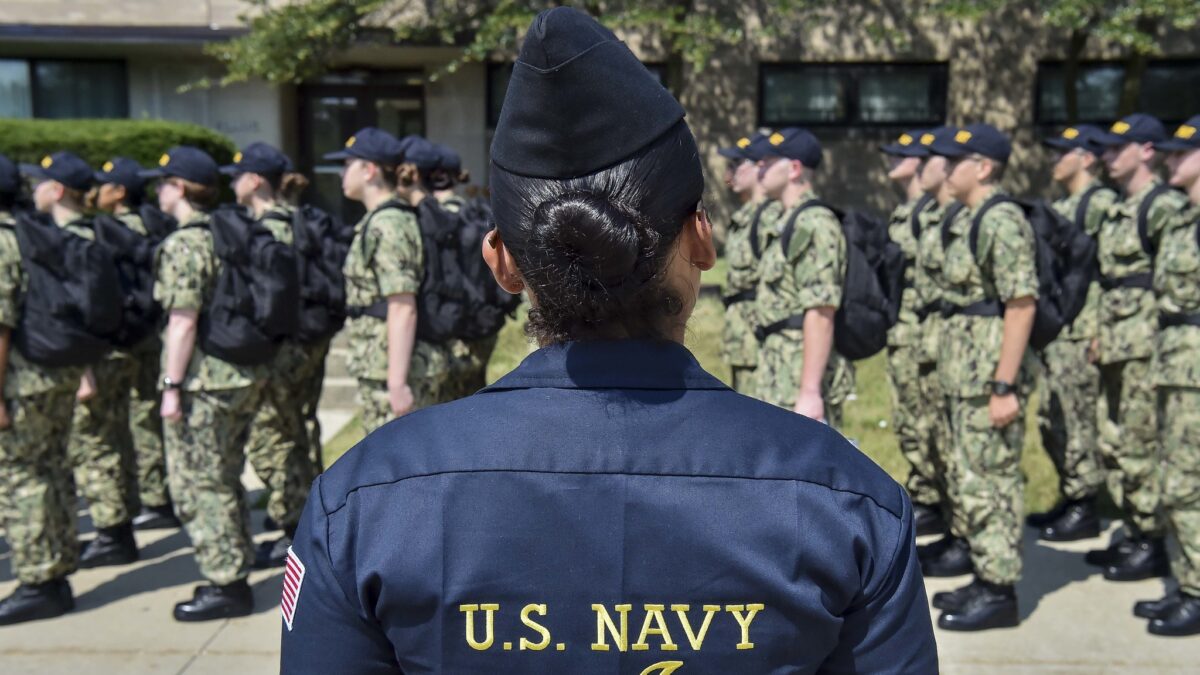
Earlier this year, an active-duty naval officer stated, anonymously, “I keep my mouth shut when it comes to politics for one reason: that barber has to trust me [emphasis added].”
“Neptunius” was referring to the awkwardness of an instance where his barber attempted to engage him in a political discussion. As part of the ethos of military professionalism, servicemembers are forced to preserve a façade of non-partisanship to maintain the public’s trust in an institution committed to preserving and defending the entire nation.
Not all servicemembers, active or retired, appear to see it that way. Retired Admiral William McRaven, former Special Operations Command commander and Navy SEAL, best known for his involvement in the mission that killed Osama bin Laden, recently authored another op-ed critical of President Donald Trump.
McRaven has been a consistent, vociferous critic of the administration from the beginning, as previously reported. But even by his standards, has McRaven gone too far this time?
Here’s the big point McRaven seemed intent on getting across: “if this president doesn’t demonstrate the leadership that America needs, both domestically and abroad, then it is time for a new person in the Oval Office — Republican, Democrat or independent — the sooner, the better. The fate of our Republic depends upon it.”
Let there be no mistake: McRaven is leveraging the uniform he once wore and the reputation he cultivated in the military to influence readers. Given the readership of The New York Times, this op-ed was clearly intended reach a wide audience, including potential voters. McRaven is intent on encouraging the public to turn against President Trump. It matters not that McRaven’s retired, because the public recognizes him not as a private citizen, but as an admiral and a decorated Navy SEAL, a perception McRaven is very likely aware of and embraces.
People Won’t Trust a Political Institution
Even during times of hyper-partisanship, the military remains the most-trusted institution in America by a wide margin. But trust can be undermined if the services are viewed as yet another partisan institution. As Duke University law professor and retired Air Force Deputy Judge Advocate General Charles Dunlap recently explained:
…that sterling reputation is much-based [sic] on the public’s belief that the military, unlike so many other entities these days, is an altruistic organization impartially focused on serving the Nation’s interests. Because the military normally stays apolitical, something too rarely found in today’s hyper-polarized environment, I don’t think it’s perceived as yet another self-serving interest group.
Do Americans need to be worried about where civil-military relations are headed? There’ve been several troubling recent instances that suggest the military is at least vulnerable to the perils of partisanship. In August, a major in the Army National Guard attended a Joe Biden rally in South Carolina and gave a rousing endorsement of the former vice president’s candidacy in front of a crowd of hundreds while in uniform. Not only were her actions an obscene legal violation, they were also an exhibition of, as Dunlap put it, “flagrant and notorious disobedience.”
Biden, either oblivious or unwilling, had next to nothing to say about the matter. Politicians’ seeming lack of concern is worrisome, as it enables such problematic behavior. In an address to troops just prior to leaving office, President Barack Obama implied that servicemembers had the right to criticize the commander-in-chief, which was factually wrong.
The significance of this remark was magnified by the fact the speech took place a month after a very heated presidential election had ended and a month before the Trump administration was set to begin. Context being what it was, a commander-in-chief suggesting troops be disobedient to their next commander-in-chief amounted to encouraging partisanship in the military.
Trump has contributed to the erosion of civil-military norms as well. Visits to Iraq and Germany in December 2018 saw the president sign the emblematic red “MAGA” hats troops owned and speak to them in a manner consistent with explicitly political events. Then there was the incident last May involving a Navy warship bearing the namesake of the late Sen. John McCain, a political nemesis of the president. Critics contend that while military politicization certainly didn’t begin under Trump, the 45th president has been particularly callous and careless in this regard.
Retired Officers Lack the Discipline to Zip Up
In addition to McRaven, there’ve been numerous other instances of retired military officers, including Martin Dempsey, Stanley McChrystal, and Joseph Votel openly criticizing the president. While none of these criticisms rise to the level of McRaven’s, the intended message being collectively conveyed seems to be: Trump doesn’t have the confidence of America’s current and former military brass.
More alarmingly, a large number of current and former special operations members have broken the “code of silence” by joining an increasingly raucous chorus of criticism. One official speaking on condition of anonymity described troops operating on the frontline in Syria as “livid” regarding Trump’s decision to withdraw troops.
It’s one thing for retired servicemembers to speak out against the president; quite another for those on active duty to do so. What does a military afflicted by political partisanship look like? Duke University civil-military relations scholar Peter Feaver, widely credited with coining the phrase “The commander-in-chief has the right to be wrong,” offered his thoughts.
“The worst-case scenario, which I think is quite far-fetched [emphasis added], is that the military gets infected with the toxic partisanship that bedevils civilian society, resulting in a significant loss of military capacity/readiness,” he posited, citing the racial turmoil of the ‘60s and the drug influence of the ‘70s that especially afflicted the Army, resulting in what became known as the “Hollow Force.”
Encouraging Insubordination, Open and Otherwise
The likelier consequence of a politicized military, Feaver believes, is a civil-military crisis constituting heavy doses of “shirking”—deliberately avoiding duties and responsibilities without openly defying superiors. Shirking, is, of course, an indirect form of insubordination, which can easily lead to dysfunction if committed in excess, something Feaver has repeatedly warned about.
What if “shirking” is already happening? It was reported in The Washington Post, for example, that the military spent more time attempting to steer Trump away from his preferred policy of exiting the Syrian conflict rather than formulating a means of implementing his policy preferences. A military officer who served in Syria reported hearing statements to the effect of “How do you steer him to the right decision and not where he wants to go?” Likewise, another soldier believes the decision to withdraw troops from northern Syria shouldn’t come as a surprise, since Trump announced it once before and the Pentagon apparently didn’t follow through the first time.
If true, it’d be consistent with other accounts that indicate obeying orders has become optional under the Trump administration. It also feeds the narrative of a “deep state” obstructing the president at every turn, except the deep state now includes the one institution whose obedience to the commander-in-chief must be deemed above reproach—the military.
Most troubling, perhaps, is the role the American people might play in a possible civil-military crisis. As scholars have discovered, the public has increasingly come to find military disobedience justifiable. This is particularly unsettling given how polarizing and unpopular the Trump presidency has been.
Americans who view the Trump administration as an exigent circumstance may in fact prefer that servicemembers, active or retired, not only speak out against the president, but disobey his orders. The country may not be that deep down the rabbit hole, but, again, current trends offer cause for concern.
McRaven may feel he’s serving his country by voicing opposition. But by calling on the public to oust Trump in 2020, he may very well have crossed the line from making questionable remarks to engaging in overtly political rhetoric.
He’s not the only one. Just as the public trusts the military above all institutions, McRaven ought to trust the American public to decide for themselves whether Trump should stay or go. The normalized exploitation of military service for partisan political purposes should never be acceptable, and Americans must outright reject it. Failure to do so means representative government is in trouble.









